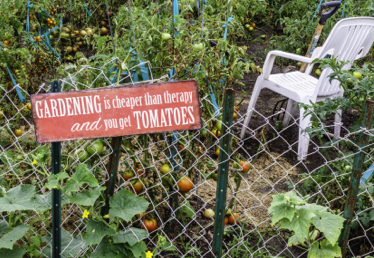
The Truth About Therapy

A chartreuse-clad lady with three—no, four—items dangling from both hands is standing before me in a checkout line that snakes around two different counters. It’s 5:07 a.m. on Black Friday. Slashed prices coaxed sale hunters like us to surrender their sleep.
And savings.
I tussle with a yawn. Retiring my crusty phone for an eager new model seemed brilliant, but now I can’t wait to return to the land of zzz’s.
There’s still a couple more hours before the sun starts its shift, although you won’t know it by observing this lady. The last few minutes taught me her name (let’s call her Janice), personality (bubbly), age (a few weeks from the big 5-0)—and that she knew how to infuse waiting with words.
I’m about to learn her hobby.
“I just love bargain buys,” Janice gushes. She transfers the shop’s latest smart phone and mini tablet, along with the tablet’s cover and set of earphones, into a shopping bag. “All these for under 200 bucks!” Pride laces her announcement as she pats the bag. “Shopping is my therapy,” she continues with a chortle.
Her body language beckons me to add to the dialogue. Maybe she expects something like,
“Uh huh! Well, vacation is my therapy.”
(Or chocolate; food; working out; or any activity, really.)
After all, similar sentiments are widespread:
- Wine is cheaper than therapy.
- I don’t need a therapist. I just need my dog.
- Gardening is cheaper than therapy, and you get tomatoes.

Why this mentality? Why not give credit to where credit is due, and honor therapy as a respectable means for healing and growth? Dicing onions may de-stress culinary-minded souls. Momentarily. Because how can tiny tomatoes mend the heart’s fractured pieces for good, when it is friction in relationships which frequently fosters heartaches?
It makes sense for people to play a crucial role in healing. People such as therapists and counselors—who aren’t just nurturing by nature, but who also have the backing of research and training, professional ethics, and governmental accountability. Among other things.
Tomatoes are no therapist.
Substituting therapy with something else is popular because our culture ridicules therapy. Seeing a shrink is fine for characters in Hollywood shows, but full of stigma for real-world individuals.
But where is the shame in working through unresolved past, when doing so leads to a freeing future?
Is anything worth more than to fully own your soul? Not according to Jesus.
It’s now 5:16 a.m., and Janice is next at the register. She’s looking at me expectantly.
I smile. “Shopping and therapy both have their benefits.”










Dr. Audrey, you made me laugh aloud! Tomatoes are no therapist, indeed. I enjoyed your approachable and honest explanation of the value of therapy. When my husband received a serious diagnosis, our counselor was instrumental in helping us balance bad news with a healthy outlook. A tomato would not have been nearly so helpful.
Now it’s my turn to laugh at your last sentence! 😆